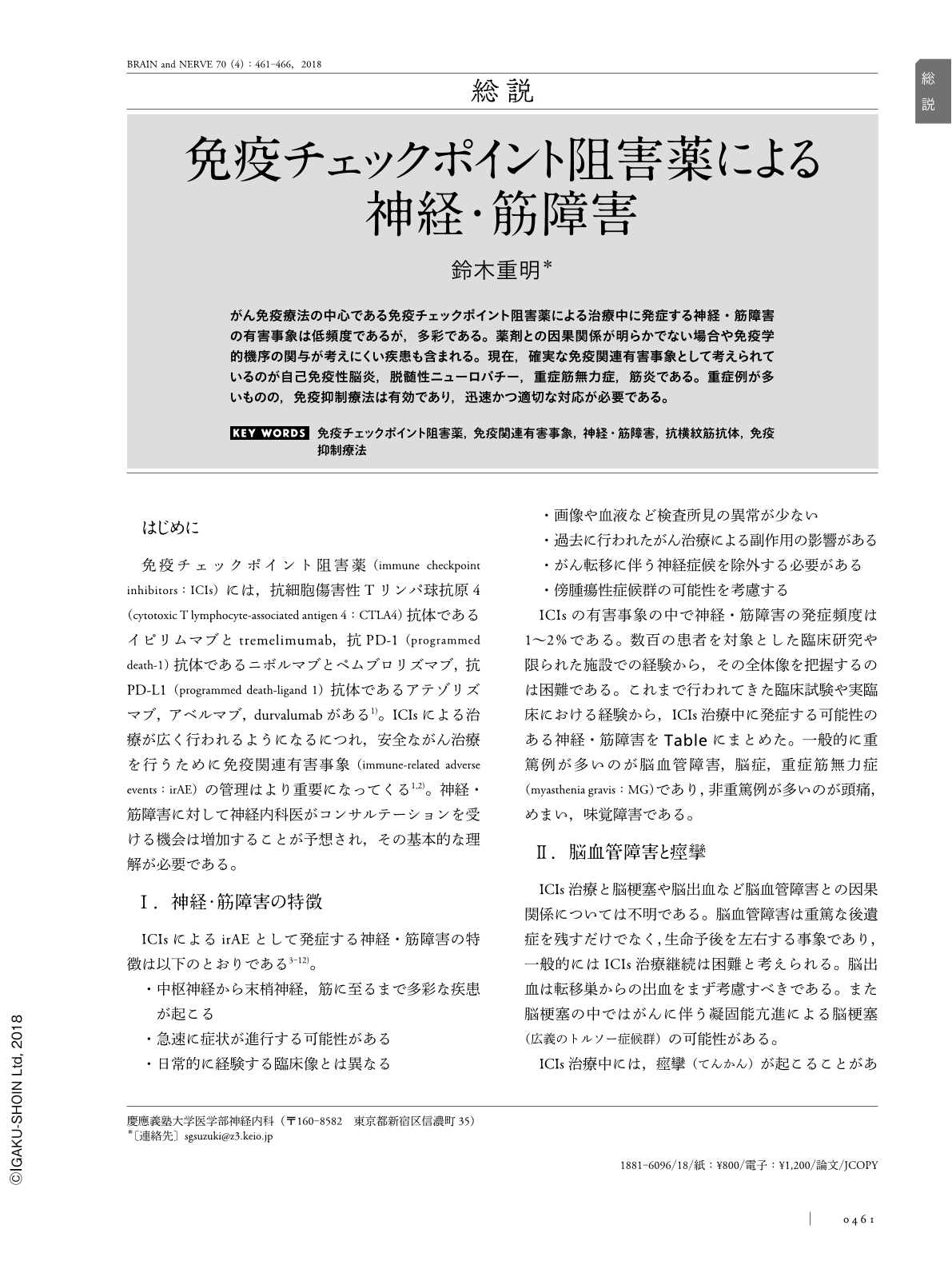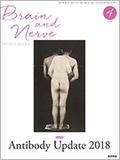Japanese
English
- 有料閲覧
- Abstract 文献概要
- 1ページ目 Look Inside
- 参考文献 Reference
がん免疫療法の中心である免疫チェックポイント阻害薬による治療中に発症する神経・筋障害の有害事象は低頻度であるが,多彩である。薬剤との因果関係が明らかでない場合や免疫学的機序の関与が考えにくい疾患も含まれる。現在,確実な免疫関連有害事象として考えられているのが自己免疫性脳炎,脱髄性ニューロパチー,重症筋無力症,筋炎である。重症例が多いものの,免疫抑制療法は有効であり,迅速かつ適切な対応が必要である。
Abstract
Neuromuscular adverse events (AEs) in cancer patients treated with immune checkpoint inhibitors (ICIs) are characterized by diverse clinical subsets. The general features of neuromuscular AEs have remained elusive due to its low frequency, ranging from 1-2% of cancer patients undergoing ICIs therapy. The diseases affect the central nervous system, peripheral nerves, neuromuscular junction, and muscle. Disease onset and progression may be rapid with a critical clinical course. The clinical presentation may differ from that of patients whose symptoms are unrelated to drugs. Headache, dizziness, and dysgeusia are relatively common and mild treatment-related AEs. In contrast, immune-related AEs, such as autoimmune encephalitis, demyelinating polyneuropathy, myasthenia, and myositis are more serious conditions. There is a strong correlation between ICIs and myasthenia, myositis, and myocarditis. Immune-modulating medication is generally effective for neuromuscular AEs. However, there are guidelines for treatment, and checkpoint inhibitor therapy should be withheld until the pathophysiology of the AEs is defined. Both CD8+ cytotoxic T cells and autoantibodies are involved in the pathogenesis of neuromuscular AEs. Therefore, understanding the mechanisms of neuromuscular AEs is necessary to alleviate the symptoms associated with ICIs therapy in cancer patients.

Copyright © 2018, Igaku-Shoin Ltd. All rights reserved.


